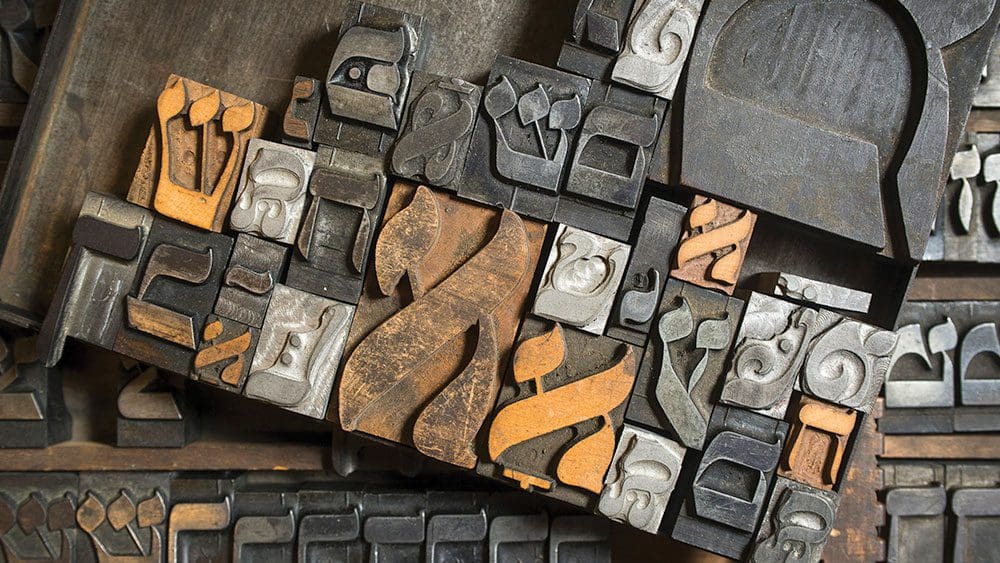Preserving Jewish Past

As Samuel Spinner was researching his first book, Jewish Primitivism, which will be published next year, he occasionally came across references to books that dealt with Jewish life during the time of the Holocaust.
The texts did not fit his immediate project, which focused on understanding Jewish identity in modern Europe. Yet something about them prompted Spinner, an assistant professor of Yiddish language, literature, and culture in the Department of Modern Languages and Literatures, to note the references might work for another project in the future.
Among the references he found: a stunning series of 175 books, published in Buenos Aires between 1946 and 1966. They were all in Yiddish, a language commonly associated with Jews of central and eastern Europe.
“It was far from uniform really, something of a grab bag,” he says of the series. “Memoirs of growing up in a small town. Memoirs of concentration camps and death camps. Books of poetry. Novels. Literary criticisms. On and on and on.
“The only thing uniting all these books was they were all in Yiddish. But even that wasn’t entirely true. There were a couple that had been translated into Yiddish.”
Samuel Spinner
Spinner, who purchased most of the 168 of the series’ texts he owns from the Yiddish Book Center in Massachusetts.
Spinner wondered who had edited such a large and diverse collection, why it had been published, and what audience the books were intended to attract.
He learned the editors were originally from Poland and were probably part of a large migration of Jews from central Europe to Argentina that followed earlier migrations that began in the late 1800s. A robust Jewish community already established in Argentina meant potential financial support and a readership for the books, he says.
The series may have been an attempt to preserve what Jewish life had been like before their communities were obliterated, and six million Jews murdered by the Nazi regime after it came to power in 1933.
The texts from Buenos Aires, and the other works Spinner has come across, form the foundation of his next book. He has been awarded a fellowship at the United States Holocaust Memorial Museum’s Jack, Joseph and Morton Mandel Center for Advanced Holocaust Studies in Washington, D.C., to work on the book, which he has tentatively titled Museums of Words: Holocaust Museums and Literature.
Spinner sees his book as combining “these disparate parts brought together to do a larger program like museums, with their different rooms and floors, having one larger, overarching purpose.”
It is a lot to organize, confesses the native of Canada, whose mother was a med student at Hopkins when she met his father, then chief resident in psychiatry at Johns Hopkins Hospital. “I can’t give you a finite end date. Hopefully, the book will be done, in some shape or version, about three years from now,” he says.
“But it is not a slog at all. I am really enjoying it. Everything feels fresh,” he says. “It’s fun. I feel energized and excited about it.”




